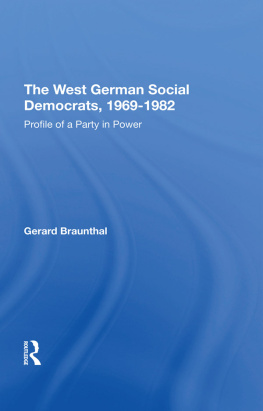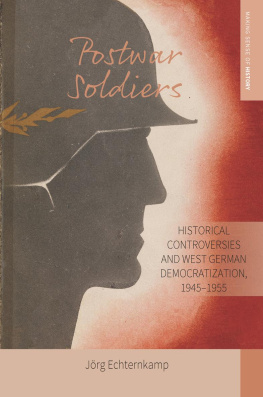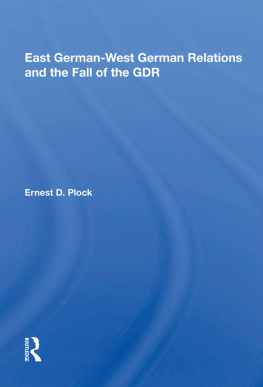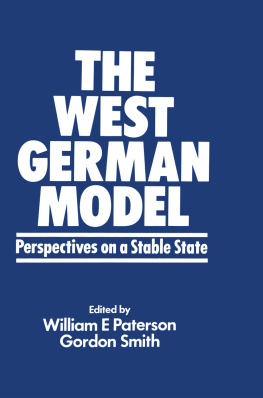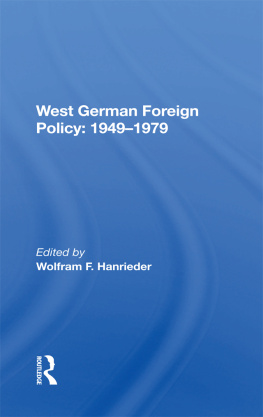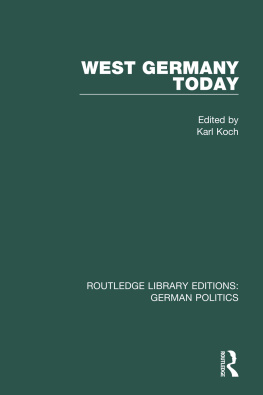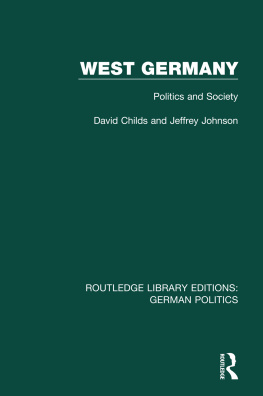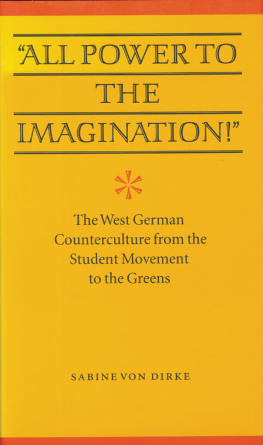FOREIGN FRONT
A book in the series
Radical Perspectives: A Radical History Review book series
Series editors: Daniel J. Walkowitz, New York University
Barbara Weinstein, New York University

2012 Duke University Press
All rights reserved
Printed in the United States of America
on acid-free paper
Designed by C. H. Westmoreland
Typeset in Minion Pro with Quadraat
by Keystone Typesetting, Inc.
Library of Congress Cataloging-in-Publication
Data appear on the last printed page
of this book.
Duke University Press gratefully
acknowledges the support of Wellesley
College, which provided funds toward
the publication of this book.
CONTENTS
History, as radical historians have long observed, cannot be severed from authorial subjectivity, indeed from politics. Political concerns animate the questions we ask, the subjects on which we write. For over thirty years the Radical History Review has led in nurturing and advancing politically engaged historical research. Radical Perspectives seeks to further the journals mission: any author wishing to be in the series makes a self-conscious decision to associate her or his work with a radical perspective. To be sure, many of us are currently struggling with the issue of what it means to be a radical historian in the early twenty-first century, and this series is intended to provide some signposts for what we would judge to be radical history. It will offer innovative ways of telling stories from multiple perspectives; comparative, transnational, and global histories that transcend conventional boundaries of region and nation; works that elaborate on the implications of the postcolonial move to provincialize Europe; studies of the public in and of the past, including those that consider the commodification of the past; and histories that explore the intersection of identities such as gender, race, class, and sexuality with an eye to their political implications and complications. Above all, this book series seeks to create an important intellectual space and discursive community to explore the very issue of what constitutes radical history. Within this context, some of the books published in the series may privilege alternative and oppositional political cultures, but all will be concerned with the way power is constituted, contested, used, and abused.
No oppositional political culture has received more attention from historians in recent years than the student movements of the 1960s. However, even sympathetic studies of the New Left and the Sixties tend to favor a narrative that locates its origins in Europe and the United States, and separates (following Jrgen Habermas) a good student leftthat advocated broader liberalization and human rights, in the Enlightenment traditionfrom a bad one that tragically degenerated into narcissism and violence, inspired by a warped vision of Third World revolution. These dual assumptions are boldly and persuasively challenged in Quinn Slobodians superb study of the German student movement of the 1960s, Foreign Front. The early chapters trace the crucial role played by thousands of foreign students from Asia, Africa, and Latin America, enrolled in West German universities, in both inspiring and mobilizing the first manifestations of German student protest during the 1960s. Indeed, Slobodian suggests that the international wave of demonstrations following the assassination of Congolese leader Patrice Lumumba in 1961protests in which African and other Third World students played a central rolewould be a more appropriate starting point for a global history of the sixties than the oft-cited Berkeley Free Speech Movement that began in 1964.
It was flesh and blood political actors from the Third World, often speaking in the language of democratization and human rights, who helped inject concerns about neo-colonialism and U.S. imperialism into political debates at German universities. To quote Slobodian, West German Third-Worldism did not inhabit a realm of fantasy separate from political reality for New Leftists, despite the utopian elements contained in this perspective. The result of his meticulous research and innovative perspective is a book that genuinely decenters the history of the student left and that allows us to appreciate the significance of a Third World politics that amounted to much more than simply a projection of the desires of Western students. For all these reasons, it is a very welcome addition to the Radical Perspectives series.
This book was a collective effort, and I am happy to add some of the names that should trail mine on the title page. My immense gratitude goes to my doctoral adviser, Molly Nolan at New York University, for her support, wisdom, and much-needed proof that critical scholarship and political integrity can coexist. At NYU, the work and mentorship of Jane Burbank, Jane Caplan, Fred Cooper, Manu Goswami, and Marilyn Young challenged and guided me through the completion of the dissertation out of which this book came. Kristin Ross and Maria Hhn, two scholars whose work I greatly admire, were gracious enough to be readers on the dissertation, for which I was very thankful.
Among my fellow graduate students at NYU, Elisabetta Bini, Maggie Clinton, Sasha Disko, Simon Jackson, Leigh Claire LaBerge, Michael Palm, Michelle Standley, and Matthew Wendeln were colleagues and friends. Our reading groups, with their rotating membership, gave space for ideas to grow while forcing us to defend their relevance. At NYU, academic work overlapped with union work, and my colleagues in GSOC/UAW inspired me about the role of organized academic labor in the United States.
The travels of research and writing created new friendships. My thanks go to Christina Gerhardt, Rdiger Graf, Jennifer Ruth Hosek, Kris Manjapra, Jennifer A. Miller, John Munro, and Dieter Plehwe for conversations and collaborations. In Berlin, I had the pleasure of spending a few months at the APO Archive in Lankwitz, where Ulrike Gro welcomed me with instant coffee and conversation while her dog Blue slept between the archives shelves. The archivists at the Hamburg Institute for Social Research, the Federal Archive in Koblenz and Berlin, the Deutsche Kinemathek, and the Political Archive of the Foreign Office were also helpful and welcoming. Since being at Wellesley College, I have profited from the support and guidance of colleagues both inside and outside of the History Department.
My deep thanks are due to Barbara Weinstein and Daniel Walkowitz for their faith in this project and to Valerie Millholland, Gisela Fosado, and others at Duke University Press for seeing it through. The input of two anonymous readers was also indispensable for turning the dissertation into a book.
A version of was first published as What Does Democracy Look Like (and Why Would Anyone Want to Buy it)?: Third World Demands and West German Responses at 1960s World Youth Festivals, in Cold War Cultures: Perspectives on Eastern and Western European Societies, edited by Thomas Lindenberger, Annette Vowinckel, and Bernd Stver (New York: Berghahn, 2011).
Finally, while this book might exist without themscholarly asceticism is nothing newthe person completing it would not feel as fulfilled and fortunate as I do without the friends and family that surrounded me along the way. To Hadji, Molly, Ryan, Andy, Lisa, and David, whose love and thoughts I benefit from and depend on. To my sister Mayana for her friendship and love. To my sister Katrina and her husband Stephne, who produced three (!) beautiful children in the time it took me to produce this pile of pages. To my Baba for her courage and her humor. To my parents who see the world through charmed eyes and share their love with everyone around them. And to Michelle, who just went out for coffee, but who will be back in a few minutes, a fact that makes life full.


